A short history of global living conditions and why it matters that we know it
October 2017 – Oxford
Max Roser – @MaxCRoser

Few have a positive view on how the world is changing
Our World in Data
Prosperity & Poverty
Long run history of growth

Today's rich countries became rich very recently.
Long run history of growth

Global inequality.The distribution in 1988.

Global inequality.The distribution in 1988.

Global inequality.The distribution in 1988.

Global inequality.The distribution in 1988.

Global inequality.The distribution in 1988.

Global inequality.The distribution in 1988.

Global inequality.The distribution in 1988.
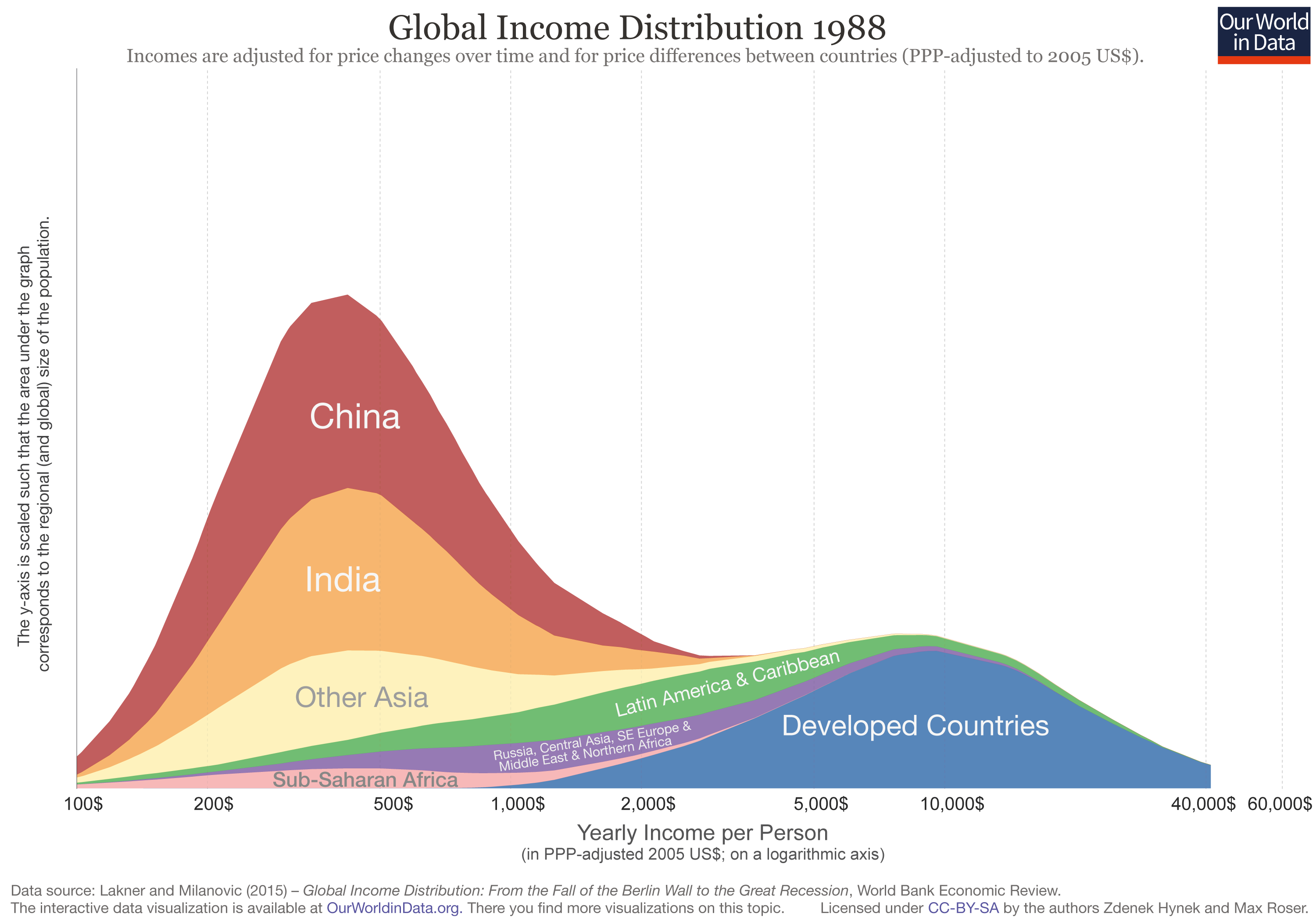
Global inequality.The distribution in 1988.

Global inequality.The distribution in 1988.

Global inequality. This is the distribution in 1988. A clearly devided world.

How global economic inequality is changing.

How global economic inequality is changing.
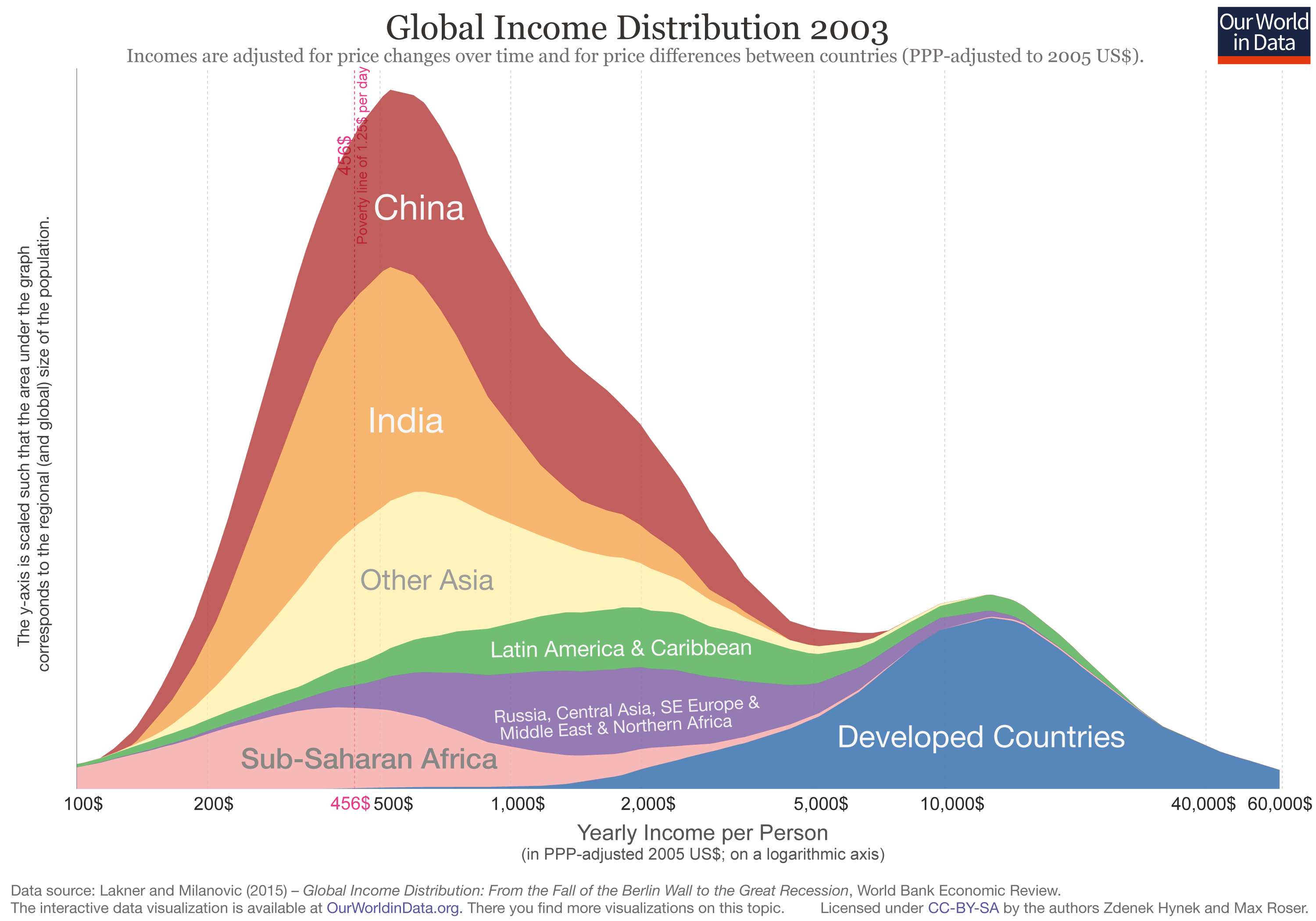
How global economic inequality is changing.

How global economic inequality is changing.

Global inequality has declined.
Declining extreme poverty
Increasing trade
Increasing economic importance of the state
Increasing economic importance of the state

Only few know about global development
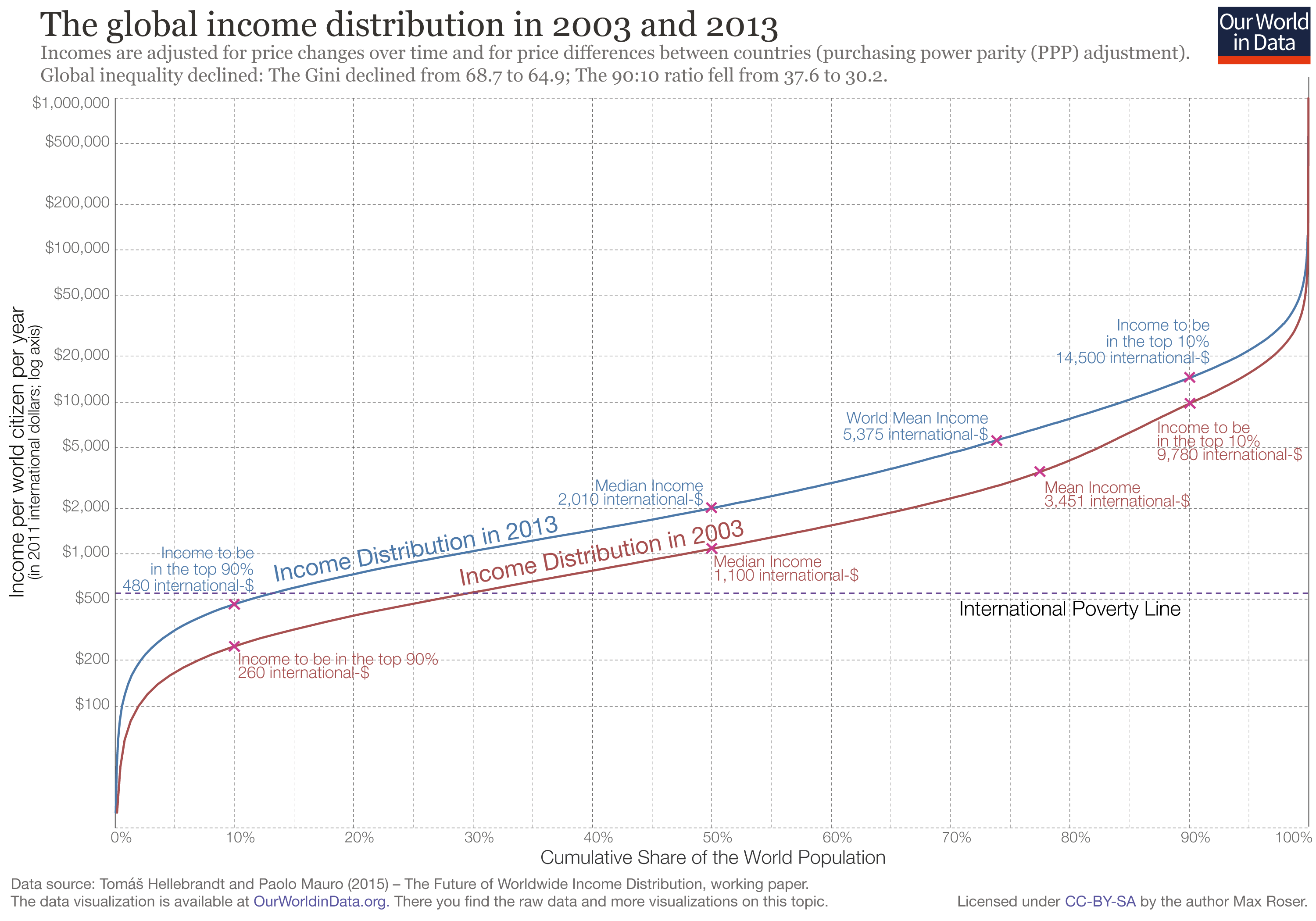


How long does it take for incomes to grow from 480$ to 14,500$?

Inequality in rich countries

How economic growth is shared

How economic growth is shared

How economic growth is shared
– Prosperity for many is a very recent achievement
– Poverty declined for 2 centuries; never faster than now
– Global inequality is falling, but very high and it will remain high for a long time
Health
Life expectancy around the world
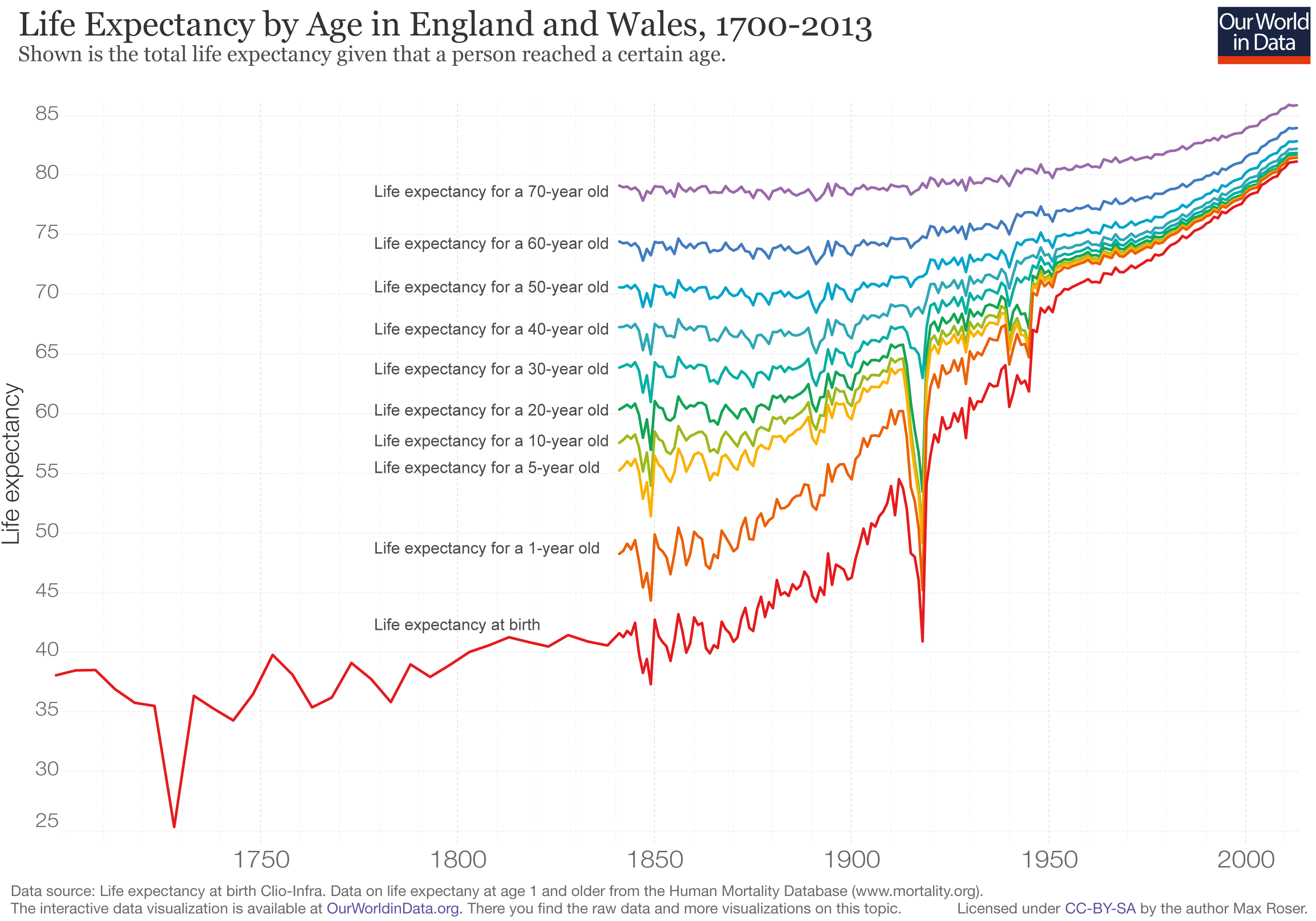
Not all child mortality.
Dead children
Child mortality in the past – Press play to see the change since then
"In 1800, 43% of the world's population died as children. By 1950 it was down to 20%. By 2013 it was down to 3.4%. This is a big win!"

In many parts of the world malaria has been eradicated (in the US in 1951) and around the world, malaria mortality figures are falling.
Education
Fewer illiterate people: in 1930 the literate world population was only 33%; by 2014 it is at 85%

We can see how the world will change when we compare the education of the old generation with the generation of the young generation.

The younger generation is much better educated.
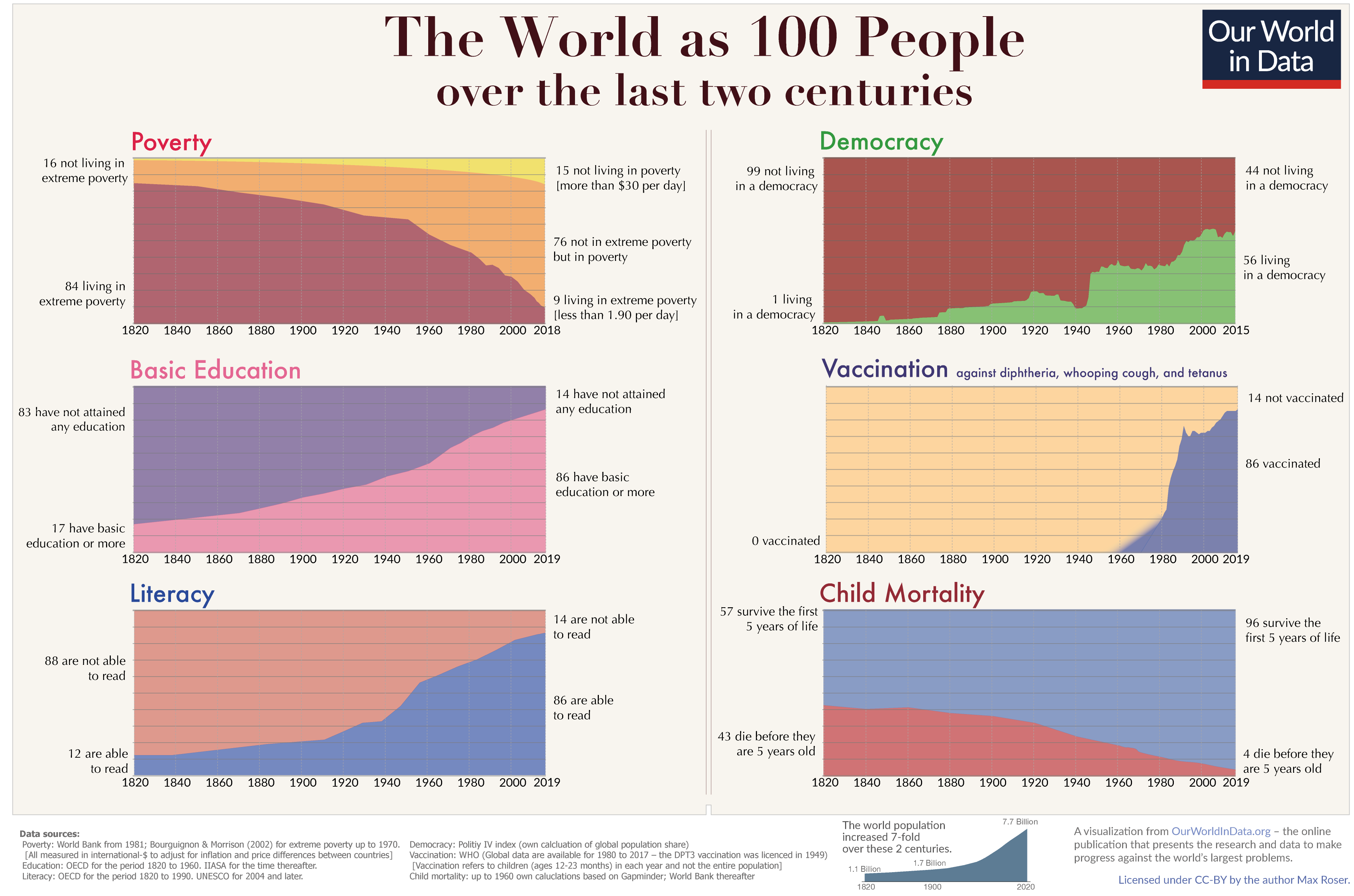
Not individually did we achieve progress but collectively.

From this perspective it is surprising that few are optimistic
Better education and end of population growth
Better health
Fewer in poverty
Better education
(We are in a strong position, to work on the big problems collectively.)


Our World in Data